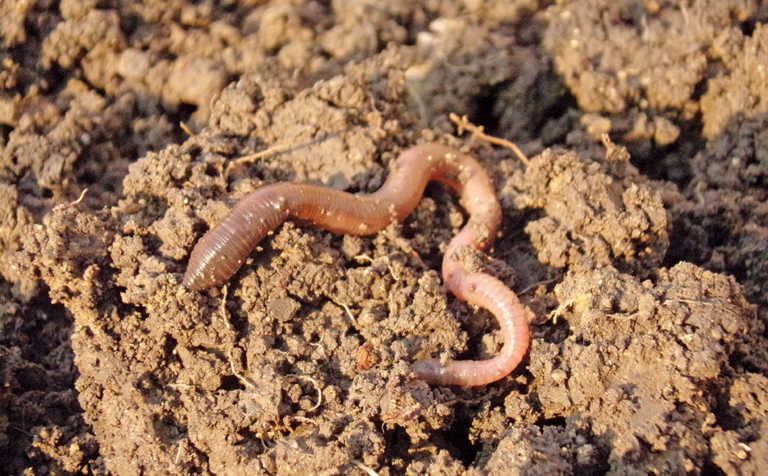
Photo: Paul Donovan
Charles Darwin spent many years studying earthworms, and came to the conclusion that they were ‘Nature’s ploughs’.
He saw them as an integral part of the soil’s fauna, and estimated that an acre of arable land could contain as many as 53 000 worms. Recent calculations have shown that a hectare of even relatively poor soil can sustain more than 250 000, while fertile soil can hold seven times that number.
Thanks to a chemical in its stomach called drilodefensins, the earthworm can digest just about every type of organic plant material.
This allows it to break down detritus, put nutrients back into the soil, help with drainage, and provide a habitat for other soil-dwelling organisms.
Earthworms also break down the structure of soil; without them, soil would consist of clods of impacted, infertile matter worth nothing to anyone.
There are approximately 2 500 species of earthworm, each of which has a different function in the soil, and lives at a different level. The earthworm has several crucial roles to play in the environment:
Biological
One of its most important functions is to recycle large pieces of organic matter into nutrient-rich humus. The latter is then pulled into the soil, where it is either ingested by the worm or breaks down naturally.
Chemical
An earthworm consumes minute soil particles which are broken down and then excreted in the form of casts. These are five times richer in available nitrogen, seven times richer in available phosphates and 11 times richer in available potassium than the surrounding upper 150mm of soil. In good soil, a single earthworm can produce up to 4,5kg of casts/year.
Physical
The earthworm’s burrowing activity greatly influences the composition of the soil. It moves microbes such as bacteria around and takes nutrients from the surface level deeper into the soil. The worm also breaks down clumps of soil into smaller particles, and its tunnelling helps with water absorption, preventing runoff and aerating the soil. The tunnels also create micro-habitats for other arthropods.
Contaminant recyclers
The earthworm picks up soil contaminants such as pesticide, fertilisers, hormones and antibiotics found in animal manure. Some of these it breaks down, while others remain in its gut. Studies show that the earthworm is extremely adaptable to contaminants and pollution in the environment, and even reproduces better in contaminated soil. This means that it can play a major role in cleaning up contaminated soil.
With the application of manure, detritus, mulch and earthworms, relatively unproductive soil can be speedily returned to fertility and sustain good crop growth.
Paul Donovan is a Botswana-based biologist.












